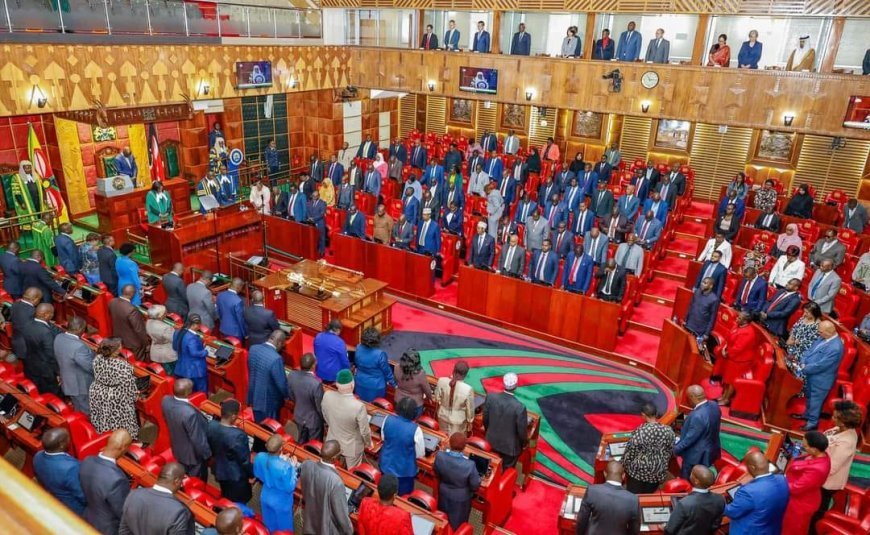Why Kenyans Cannot Recall MPs, Yet: IEBC
The ruling delivers a major setback to Kenyans hoping to remove underperforming MPs ahead of the 2027 General Election.

The Independent Electoral and Boundaries Commission (IEBC) has announced that it will not process any Member of Parliament recall efforts for the foreseeable future, despite growing public campaigns to remove certain legislators.
In a statement issued on Wednesday, July 30, IEBC Chairperson Erastus Ethekon explained that a High Court decision had declared sections of the Elections Act 2011—specifically those outlining the grounds and procedures for recalling MPs—unconstitutional due to their discriminatory nature.
This ruling, delivered in the 2017 case of Katiba Institute and Transform Empowerment for Action Initiative (TEAM) v Attorney General & Another, created a significant legal void.
As a result, Ethekon said the Commission is currently unable to act on any recall petitions, even though four have already been submitted.

Inside the National Assembly during a past sitting. /PARLIAMENT KENYA
“There is currently no enabling legislation defining the grounds and procedures for recall. This legal gap arises from the High Court's ruling in Katiba Institute and Transform Empowerment for Action Initiative (TEAM) v Attorney General & Another (2017) KEHC 4648 (KLR),” IEBC stated.
Adding “In that case, provisions within the Elections Act 2011 were declared unconstitutional for being discriminatory."
The ruling delivers a major setback to Kenyans hoping to remove underperforming MPs ahead of the 2027 General Election. It follows closely on the heels of a high-profile petition led by activist Shakira Wafula to recall Nairobi Woman Representative Esther Passaris.
Filed on Monday, July 28, the petition cited constitutional violations, abuse of office, neglect of duty, and breach of public trust as reasons for the recall.
In response, Passaris dismissed the move, urging her critics to focus on presenting alternative solutions rather than attempting to dismantle the progress she claims to have achieved in office.
"I will not inherit the burden of enmity or be forced into battles that will not deliver for my people what they need most. I stand firmly with William Ruto because leadership is about progress, not personal grudges," she continued.
"Those who want my seat must show what they can offer, not attempt to destroy what I’ve built. True leaders rise by lifting others, not by pulling them down."
Under normal circumstances, once the IEBC receives and acknowledges a recall petition, residents begin collecting signatures. The Commission then verifies the signatures within 30 days and informs the relevant Speaker within 15 days.
A recall vote must be conducted within 90 days, where voters decide the MP’s fate through a simple majority. If the lawmaker is recalled, the IEBC organizes a by-election, and the ousted MP is allowed to run for the seat again.
However, the IEBC has now submitted formal recommendations to Parliament, calling for the creation of a clear legal framework to guide the recall process for both National Assembly and Senate members, meaning Passaris and other MPs targeted for recall are still not off the hook yet.
The Commission also noted that residents still have the option to file recall petitions against Members of County Assembly (MCAs), as Parliament had already revised the laws governing their recall.







